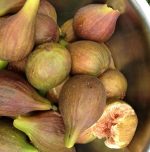Discover the benefits of red clover

Red clover, or Trifolium pratense, is a legume originally from Europe and Asia, now also found in North America.
Thriving in light, sandy meadow soil, this plant features taproots, bushy stems, and dark pink or purple flowers.
Beyond its natural beauty, red clover offers various health benefits, particularly for menopausal women.
Red clover is rich in minerals like calcium, magnesium, potassium, and phosphorus, as well as vitamins such as niacin, thiamine, and vitamin C.
It also contains isoflavones, plant compounds that mimic estrogen, which may help with menopausal symptoms, heart health, and osteoporosis. However, more studies are needed to confirm these benefits.
Here are the health benefits of red clover:
Red clover isoflavones may slow bone loss and enhance bone mineral density in pre-menopausal and peri-menopausal women. For instance, a study on 60 premenopausal women showed reduced bone loss after taking red clover extract for 12 weeks. However, further research is required to verify these findings.
Isoflavones in red clover may alleviate menopausal symptoms due to their estrogen-like effects. Some studies report a reduction in hot flashes and improvements in depression, anxiety, vaginal dryness, and libido. Yet, larger studies are necessary to confirm these effects.
Red clover may improve skin and hair health. Menopausal women reported enhanced texture and overall health of hair and skin after taking red clover extract. Creams containing red clover might also help with skin conditions like eczema and psoriasis by reducing inflammation and redness.
Early research suggests that red clover might improve heart health by raising HDL (good) cholesterol levels. Some studies showed improved arterial compliance and blood circulation in menopausal women taking red clover supplements, potentially reducing heart disease risk.
Preliminary studies indicate that red clover isoflavones might help reduce the risk of prostate and endometrial cancers. However, due to its estrogen-like effects, it may also stimulate hormone-sensitive cancers, such as breast cancer. More research is needed before recommending red clover for cancer prevention.
Here are recommendations for usage and precautions:
- Red clover is available in various forms, including teas, tinctures, tablets, capsules, and extracts.
- It’s generally safe, but potential side effects include allergic reactions and hormonal imbalances.
- Pregnant and breastfeeding women, children under 12, and individuals with hormonal disorders should avoid red clover.
- It may also interact with blood thinners, birth control, and hormone replacement therapy, so consulting a healthcare professional before use is essential.
Red clover offers promising health benefits, especially for menopausal women, but more research is needed to fully understand its potential. Always follow healthcare advice when using red clover supplements.
Image by Elsemargriet form PxHere (Free for commercial use / CC0 Public Domain)
Image Published on May 21, 2019
Image Reference: https://pxhere.com/en/photo/1590563










Leave a Reply